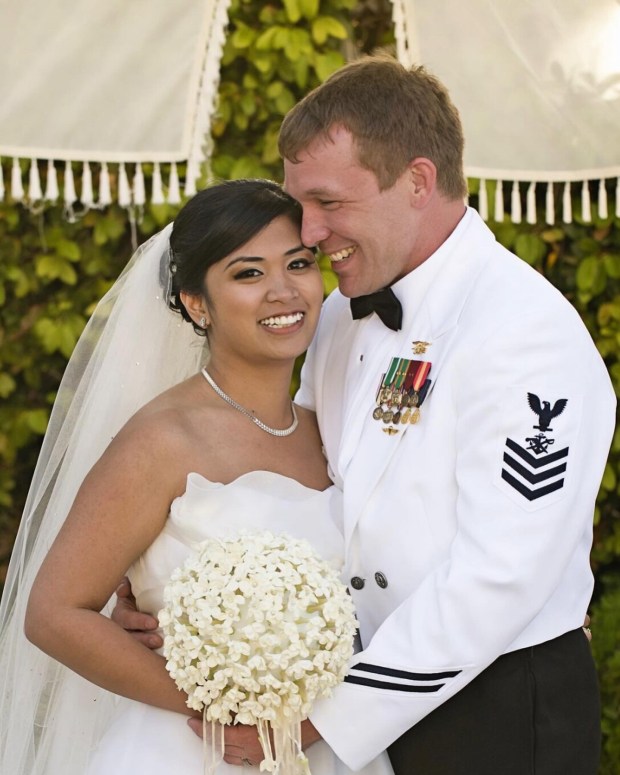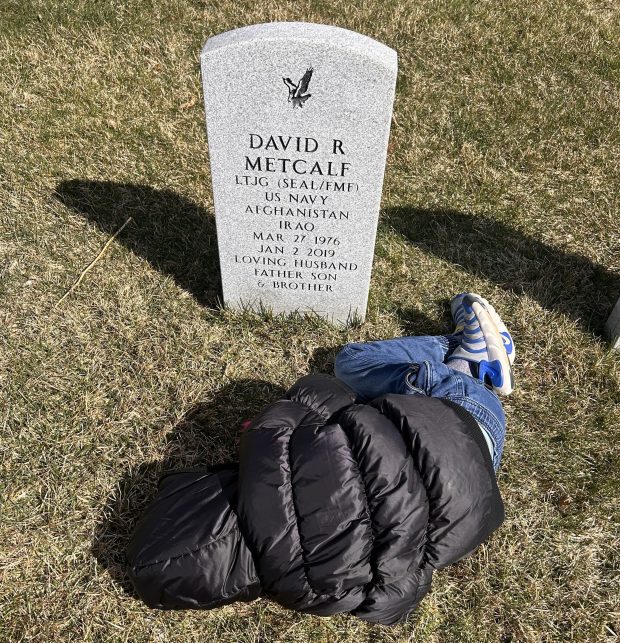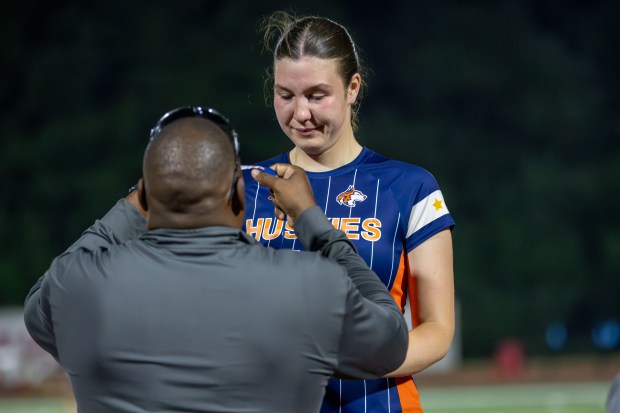Jamie Metcalf is honored to share the memory of her fallen husband this Memorial Day, but she’s nervous about it as well. While she has no doubt the Navy Seal was a hero, there’s still a stigma surrounding his death that she hopes will one day go away.
That’s because U.S. Navy Lt. Junior Grade David Metcalf committed suicide in 2019, leaving behind his wife of seven years and their 2-year-old son.
According to the USO nonprofit group, suicide rates among active-duty military members are at an all-time high since record-keeping began after 9/11. Some branches of the armed forces are experiencing the highest rate of suicides since before World War II. Research released in 2021 showed that 30,177 active-duty personnel and veterans who served in the military after 9/11 took their own lives compared to the 7,057 service members killed in combat during those same 20 years.
Bottom line — military suicide rates are four times higher than deaths that occurred during military operations.
“I feel if you want to decrease the stigma you have to change the culture,” Metcalf said. “They feel if they complain they will be discharged or will lose rank so they don’t talk about it.”
Since David’s death at age 42, Metcalf has become an advocate for brain research. She believes her husband, who worked as a physician’s assistant, saw signs of mental illness in himself even though he was never diagnosed.
“He probably diagnosed himself as having PTSD because he was a medical professional,” she said. “I believe he thought it would affect us. He started to notice a decline in himself. They are still doing research and he illuminated that research.”
Metcalf said her husband had a fear of getting Alzheimer’s because his grandfather, who had served in the army, had the disease. There are many similarities between its symptoms and those of traumatic brain injuries.
“I did ask him once if he thought he had PTSD and he got very upset with me,” she said.
The family was living at Camp Lejeune in North Carolina. David was back from an 11-month deployment and due to head out again the next day. The couple spent their last evening together playing cards.
The next morning Metcalf found a note from her husband.
“Beautiful, this will come as a surprise … there is no fixing what is wrong with me. Mentally, physically I haven’t been the same. Multiple concussions over these years have changed me. My gaps in memory, failing recognition, mood swings, headaches, impulsiveness, fatigue, anxiety and paranoia were not who I was but have become who I am. I have contemplated this act for a while…”
Said Metcalf: “Some people look at suicide as a selfish act. I think it’s a selfish act from a selfless person.”
Her husband took great care to end his life as tidily as possible, leaving clues to aid brain research after his death.
“He is still a hero, still serving while he is up in heaven,” Metcalf said. “It’s important to remember these guys because they are heroes too.”
David Metcalf was a decorated combat veteran with three tours in the Pacific region and Iraq and one final tour in Afghanistan. His military awards included the Navy and Marine Corps Commendation Medal with Gold Star and Combat C designation, the Navy and Marine Corps Achievement Medal with Silver Star and Combat V, Combat Action Ribbon with Gold Star, Iraq Campaign, Afghanistan Campaign ribbons as well as multiple unit and service awards.
“I didn’t know one person who didn’t like him,” his widow said. “He was a most humble man. Everyone put him on a pedestal.”
After her husband’s death, Metcalf moved to Naperville to be nearer to her family. She’s able to be a stay-at-home mom thanks to support from organizations like the Navy Seal Foundation.
“When you are a Seal, you’re always a Seal. They take care of us,” she said. She’s an official Gold Star Surviving Family member, entitled to go on special retreats.
“It helps us immensely,” she said.

Metcalf also serves on the board of Naperville Responds For Veterans.
The couple’s now-7-year-old receives mentorship help from the Navy Seal community.
“Franklin loved his dad. Even as a baby he would crawl to him when he came home from a deployment,” Metcalf said. “Franklin is sad. He says he tried keeping the memories in his brain, but they disappeared.”
Metcalf commemorated what would have been their wedding anniversary on April 7 on Facebook. They considered their lucky number to be 777 as in addition to that date, her birthday is March 17, his March 27.
“It’s been five years of going through these special dates without him and as much as this hurts and sucked, I now realize that we had so much more than that and we were lucky to have each other even though it was for a short time (seven years),” she says.
“I think I was focusing too much on how he would want us to live our lives and I struggled to find that answer until recently. The answer is simple, he only wants us to be happy. I was too caught up in my own grief to not feel that, but I see it now.”
Hilary Decent is a freelance journalist who moved to Naperville from England in 2007. She can be reached at hilarydecent@gmail.com.





